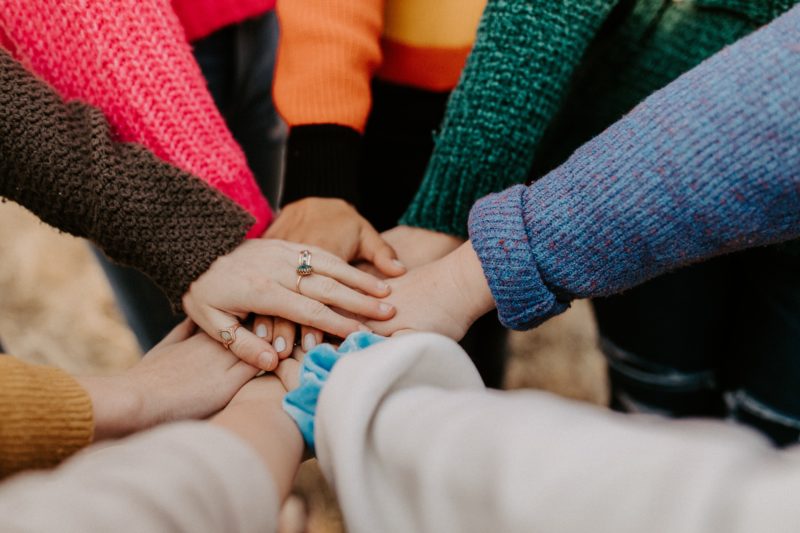
The question of how to find a grief support group is one that many people ask themselves after the death of a loved one. If there’s one thing that’s true for everyone as they experience the loss of a loved one it’s that everyone experiences grief differently. But that doesn’t mean that we have to experience grief alone. Having people to talk to and support systems to help when things are especially hard can help as you process your grief and attempt to get back to your “normal life” after losing a loved one.
Sometimes, though, it can be difficult to find a helpful resource or group that you feel connected to and know you can trust. This is true for several reasons.
Why We Don’t Talk About Grief
Grief is a natural response when we lose someone close. We can even grieve someone we’ve not been close to, or have had issues or problems with. Grief is complicated. It manifests differently for everyone; but support from others is a common thread of those who have dealt with, and survived, grief.
Grief is one of those topics that, as humans, we often try to avoid. It makes us feel vulnerable and uncomfortable. When we express grief, it sometimes makes others feel uncomfortable. For these reasons, we often avoid talking to people about our feelings when we need that connection most.
Maybe because it’s such a difficult feeling to articulate, grief is a topic we usually only discuss with people we know well and trust implicitly. This limits the number of people we actually feel safe confiding in; grief typically isn’t a topic that we will talk about with strangers or casual acquaintances.
There is a caveat to that statement, however. Often, seeking out the company of people who have either been trained in grief counseling or talking with people who are in a similar state of grieving can help us cope with the myriad feelings that overwhelm us at a time of loss.
Sometimes it can be difficult to find those people. But there are ways to connect to others, even during times when we feel the most disconnected from our friends and family. Grief support groups, whether online or in person, can be a lifeline when we are grieving.
How a Grief Support Group Can Help
Nothing is a cure-all when it comes to grief. No matter how wonderful a grief group may be, it isn’t a magical cure; you can’t just show up and expect to feel better. But grief groups, both those in person and online, can help in different ways.
Grief groups can validate your feelings. Often, when we grieve, we sometimes question if we’re grieving in the right way or if our feelings are normal or if how we’re coping is wrong. Talking to others who are also experiencing grief can help us understand that, while we all experience grieving differently, our feelings are valid. This can be a positive step in finding the peace we need.
Grief groups also help give us a different perspective. Sometimes that’s just by giving us a little bit of time each week to see different people or be in a different setting. This gives us a little space from the people in our everyday lives, which can be important; not because we don’t love them, but because everyone needs a break every now and then, especially if we’re doing most of the heavy lifting when it comes to caretaking and consoling others through their own grief.
Grief support groups also help us realize that others have stories to share. Sometimes grief and what we endure during the death of a loved one can narrow our vision; by attending a grief group and listening to other peoples’ stories, we remind ourselves that others, too, are dealing with immeasurable loss.
How to Find Grief Support Groups In Person
In-person grief support groups often spring from an already established community, like a religious organization. Churches, local hospitals, hospice providers, and sometimes even libraries and community centers have established grief groups that continually welcome new visitors.
In-person grief support groups are typically led by a qualified professional, either someone with appropriate education credentials or a member of the clergy. Hospitals have chaplains who help both patients and families with the complicated emotions of dying and grief.
Finding a support group in which you feel comfortable is the key. Look for a group that welcomes you without forcing you to talk until you’re ready. It’s important that attendees trust one another and that the person facilitating the group is transparent in their qualifications and the affiliations of the group, if any.
How to Find an Online Grief Support Group
Online grief support can come in different forms. There might be a video conference or meeting where you see everyone through their computer cameras. There might also be message boards or Facebook groups, where you communicate mostly via writing, rather than talking.
Sometimes your local community resources can also help direct you to online sources of support. Hospice providers, funeral homes, hospital chaplains, and counselors can all help find both in-person and online grief support groups.
One of the advantages of an online support group include being able to attend from anywhere. This can be especially important to people who live in more rural communities. It can also be helpful to single parents or others who have significant restrictions on when and how often they can attend in-person events.
Another advantage of an online support group, especially if you’ve not yet been able to put words around your grief, is the option to write rather than talk. Sometimes, typing words for others to read is easier than speaking. You can edit as you go, if you wish, so you don’t need to worry as much about saying something “wrong,” and you can consider your thoughts before responding to a question or a suggestion.
Of course, sometimes it’s better to sit in the same room with someone to talk. It can help to see their expressions and be able to reach over to pat their back or hold their hand if someone is especially upset.
Even though there are advantages and disadvantages to each type of group, the most important thing is that you find one that works for your schedule and then attend.
To help you find options that might be helpful to you, here are a few online resources to start:
The Compassionate Friends – This resource helps those grieving the loss of a child
AARP Grief and Loss Resources – This resource focuses on the grief of losing an aging loved one
National Widower’s Organization – This resource is devoted to widowers
American Foundation for Suicide Prevention – This resource offers support for those who have lost a loved one to suicide
Griefnet.org – This resource is specifically for adults
Hellogrief.org – This resource is for both children and adults




Recent Comments